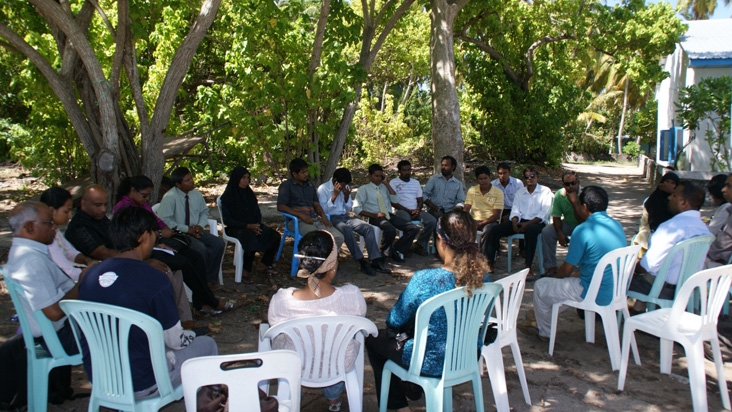Challenge
Solid waste is the most visible environmental threat to the Maldives. The management of solid waste is especially challenging due to the small island sizes, small population on the islands and lack of economic activities. With a population spread across the island chain there is little scope for harnessing economies of scale due to large costs of transportation and low volumes, making the costs of service delivery high. This poses a substantial risk to the country’s reputation as an unspoiled tropical “paradise”. The scarce surface area of any island in the archipelago puts a premium on the value of land and limits on the landfill method traditionally used in many parts of the world. The amount of waste generated far exceeds the capacity of available landfills which are basically uncontained open dumps. Current arrangements for solid waste management on most inhabited islands are inadequate. A major portion of the wastes are dumped onto the island foreshore and burned at low combustion temperatures.
Solution
The solid waste management challenge in the Maldives requires a scalable and replicable model on solid waste management on inhabited islands to improve environmental outcomes. The project has been designed as a demonstration project to provide an integrated and cost effective solution to operationalize island waste management centers and effective institutional arrangement to sustain the system in response to national policy for solid waste management and national waste management strategies, as well as reducing the environmental risks to marine habitats and greenhouse gas emissions in response to carbon neutrality by 2020 of the Government of Maldives.
Results
As a small pilot project with an implementation period of less than 2 years, the outcomes have been focused at the intermediary level. One out of 5 targeted islands (Ukulhas) integrated solid waste management has fully been realized first batch of marketable compost produced by February 2013, with capacity to provide field-based training on integrated solid waste management to other inhabited islands.
Solid waste segregation, recycling, composting and collection of user fee are fully operational in Ukulhas with 100% of the island community of 900 people benefiting from the overall environmental outcome of a cleaner island. Three islands have island waste management plans in place. All 5 islands are trained on integrated solid waste management.
